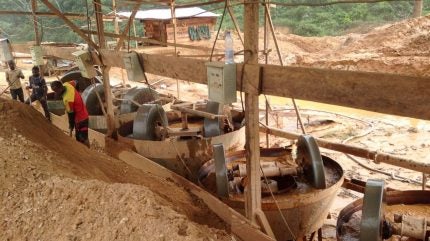

The Covid-19 pandemic is posing major challenges to Cameroon’s economy, which is largely driven by its oil resources and exports of agriculture produce such as cocoa beans, wood and bananas.
While a fall in global commodity prices following the outbreak of the pandemic is having a longer-term impact on energy products than it is on agricultural goods, disrupted supply chains have been a broader drag on global trade.

Discover B2B Marketing That Performs
Combine business intelligence and editorial excellence to reach engaged professionals across 36 leading media platforms.
Crude petroleum is by far Cameroon’s biggest export, raising $1.5bn in revenues in 2019, according to the Observatory of Economic Complexity, and the oil industry has historically been a major target for foreign direct investment (FDI) in the country.
Annual FDI flows into Cameroon have remained within a tight band since 2014, according to data from the UN Conference on Trade and Investment, never falling below $600m but never rising above $815m. In 2019, they totalled an estimated $782m.
FDI inflows into Cameroon in 2019 were much lower than in other large central African countries such as the Republic of the Congo ($3.4bn), the Democratic Republic of Congo ($1.5bn) and Gabon ($1.5bn).
Oil and gas projects bring FDI to Cameroon
Cameroon has an established oil industry and plentiful reserves to develop, but poor infrastructure and a weak legal system has deterred greater FDI into this sector.

US Tariffs are shifting - will you react or anticipate?
Don’t let policy changes catch you off guard. Stay proactive with real-time data and expert analysis.
By GlobalDataFrench energy company Engie scrapped a multi-billion-dollar liquefied natural gas (LNG) plant on the southern coast at Lolabe in 2016. Despite this setback, Cameroon is one of the only African countries to produce LNG. Bermuda-based Norwegian gas company Golar LNG started production from its floating LNG vessel off the coast of Cameroon in 2018.
In a sign that the pandemic has not halted Cameroon’s plans to further exploit its offshore gas reserves, Anglo-French exploration and production company Perenco installed the Sanaga 2 platform off the coast of Kribi in October 2020, to further support Golar LNG’s vessel.
UK-based oil and gas company Bowleven is undertaking exploration work on the offshore Etinde gas prospect. It plans to make a final investment decision on that project in 2021, according to a recent company report.
Chinese companies increase investment
Historically, European, and particularly French, companies have been the largest providers of FDI into Cameroon. In recent years however, Chinese companies have funded a number of major infrastructure projects, including a commercial port at Kribi. Once completed, the project, which was announced in 2009 and is due to be completed in 2035, is set to create the largest deepwater port in central Africa.
Chinese companies have also been building football stadiums in the country. These were built in preparation for the 2019 African Cup of Nations football tournament, although the Confederation of African Football eventually moved the tournament to Egypt after delays to preparations, and security concerns. Cameroon was then named host of the 2021 version of the tournament, although that tournament has now been delayed until January 2022 due to the pandemic.
Cameroon will hope other investment projects are not similarly delayed.


